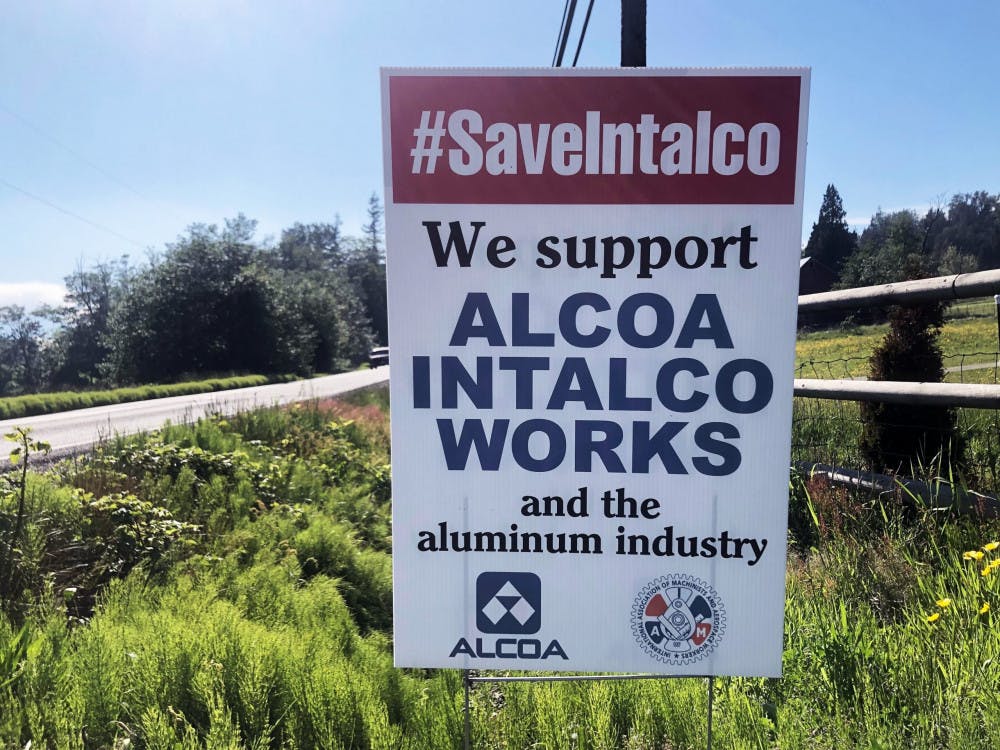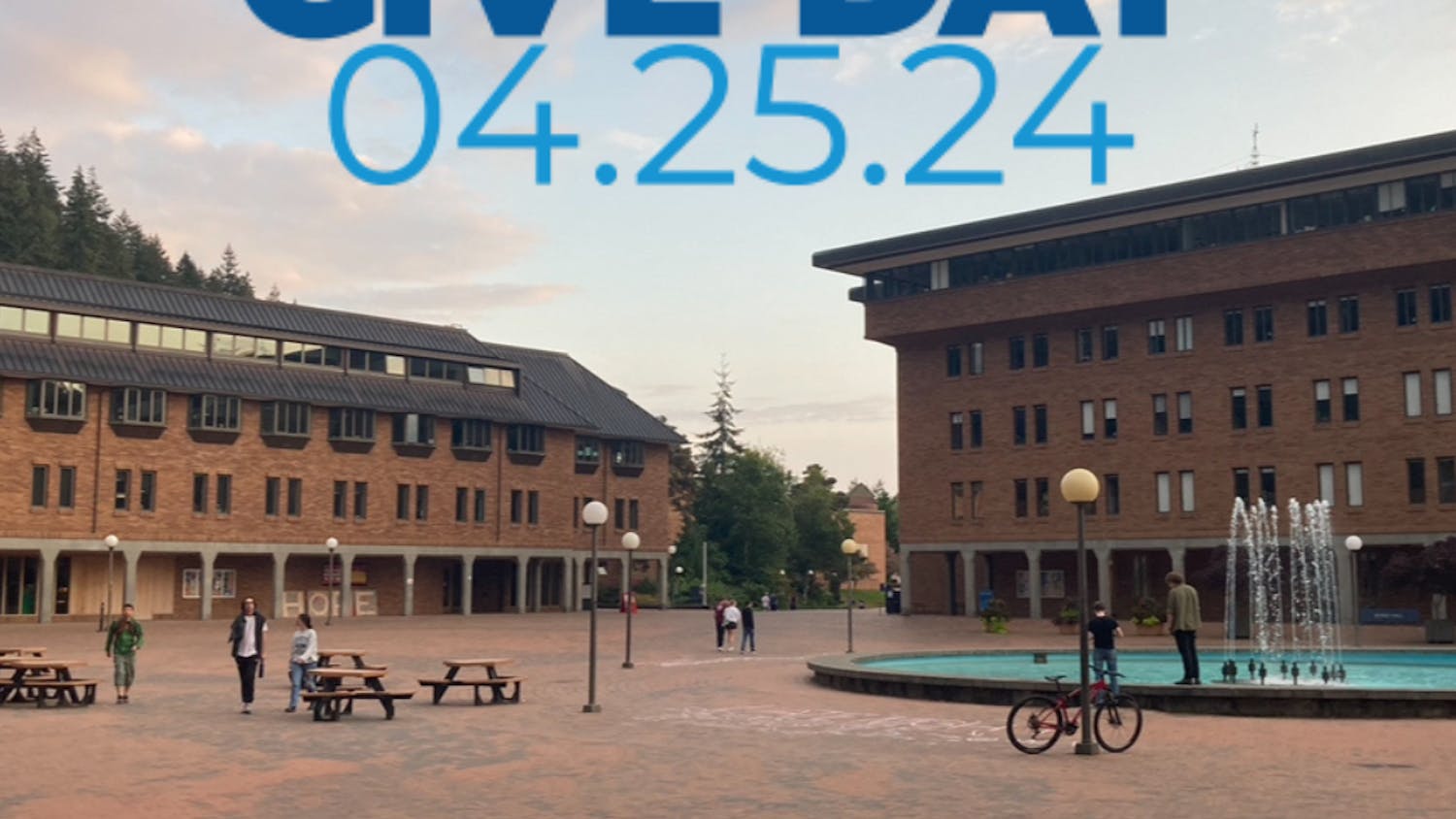
One of the seven remaining aluminum smelters operating in the U.S., located in Ferndale, announced last month that they would be curtailing their operations and letting go of 700 employees by July of this year.
According to the press release published by Alcoa Intalco Works on April 22, the corporation made the choice to halt their operations due to “declining market conditions.” The release stated that in the first quarter of 2020, the Intalco smelter located in Ferndale had lost a total of $24 million.
The corporation has a history of curtailing its operations, most recently in 2016 when Alcoa planned to reduce its smelting capacity at the Wenatchee and Ferndale aluminum facilities.
Although the curtailment was eventually delayed due to changes in energy and raw material costs in the market at the time, that allowed Alcoa to continue to operate at the Washington locations, according to a 2016 press release by Alcoa.
“We’ve known that Intalco has been struggling to compete with a global market for about 20 years now, so you know, it’s kinda always been in the back of our minds,” Ferndale Mayor Greg Hansen said. “We just kinda hoped it wouldn’t be in the middle of the rest of this mess.”
As the last aluminum smelter in the Western U.S., aluminum production has been picking up internationally with over 130 operating aluminum smelters in China, according to the World Aluminum Organization.
The city of Ferndale is known for its legacy of industrial power. The Intalco Works smelter has operated in Ferndale for the past 54 years.
“For some people, this is the third generation their family has evolved around the aluminum industry. You have individuals that have worked out there for 30 years and when you’re in your 50s, you don’t want to train for a new career,” Hansen said. “This is what you’ve done your entire life.”
Many wonder what their city would be like in the absence of Intalco. The smelter and its employees interact with countless local businesses and other people in the community to regularly keep the plant functioning.
Dakota Koch, who had started his new job at Intalco as a maintenance planner in March, was recently curtailed from his job at the facility.
"Because I hadn't been there long, my previous job offered me a position immediately. However, I would have been laid off June 21st had I stayed,” Koch said.
Koch said he is remaining hopeful that decisions will be changed but with the current situation, it’s hard to know what will happen.
“It’s a shame this plant has to shut down,” Koch said. “We are the only smelter in the U.S. that runs off 100% hydroelectric power, we have the only deepwater pier, and we are in the middle of a huge process improvement that would have drastically cut our carbon emissions.”
Koch said he was worried where this would leave Intalco on the global market.
“Our competitors are mainly [smelters from China] that are coal operated and have little or no environmental regulations, it is because of this they can produce aluminum so cheaply,” Koch said. “Of course the customers buying aluminum will always go to the lowest bidder. We just can’t keep up with that.”
In April, the World Aluminum Organization reported that North America produced 342 thousand metric tonnes of aluminum while the global leader was China producing an estimated 3,100 metric tonnes.
In the major corporation’s press release of their first-quarter earnings of 2020, Alcoa CEO Roy Harvey said, “The smelter is uncompetitive and current market conditions have exacerbated the facility’s challenges.”
According to Hart Hodges, professor and director at the Center of Business and Economics Research, the smelter operations often interact with the local workforce and economy.
“The factory has materials delivered from small manufacturers and fabricators. They rely on local delivery people, technicians, repairman specialists for equipment at the plant and more,” Hodges said.
In addition, Intalco is connected with Bellingham Technical College and Whatcom Community College in programs that help train young workers and apprentices to work at the smelter.
“If you take away Intalco, you affect all the related jobs. The workers at Intalco spend a share of their income seeing local doctors, eating at local restaurants, etc., so there is a ripple effect,” Hodges said.
Hodges estimated that for every job lost at Intalco it’s possible to affect as much as two and a half other jobs elsewhere in the community.
The large number of predicted layoffs by Alcoa has caught the attention of Sen. Doug Ericksen (R-Ferndale) and Sen. Lynda Wilson (R-Lynden).
The two senators have been fighting for the continued operation of the Intalco Works smelter as well as getting aluminum recognized as a critical resource, Ericksen said.
“We’re reaching out directly to the White House and administration to make sure that aluminum is recognized as a primary metal critical to the national defense and interest of the United States,” Ericksen said.
On April 23, the two senators led a rally at Ferndale’s Pioneer Park where over 150 Alcoa workers and their families turned out. In a press release on April 24 by Ericksen, it was reported that all social distancing measures were followed despite the Governor's statewide stay-at-home order.
Intalco Works in Ferndale is one of few smelter locations available in the United States that is able to produce lightweight aluminum alloys for jet planes.
“There are seven operating smelters in the U.S. and over 140 in China,” Ericksen said. “China is flooding the market with underpriced aluminum due to its relaxed environmental standards, labor laws, and the ability to adopt products. I think many members of congress can see preserving this industry is critical to national security.”





